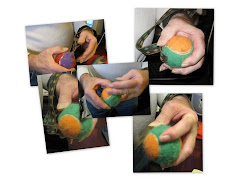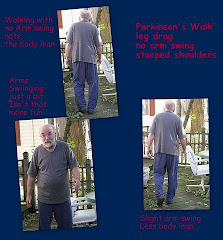 |
| The farm in recent years |
DDT was first discovered in 1874 by an Austrian student who didn't know what it could be used for. In 1936 Paul Molller, a researcher for J. R. Geigy, a Swiss chemical company, was looking for a moth proofing agent and discovered that DDT was a very powerful insecticide. He thought it was not harmful to man. Geigy patented DDT in 1940.
At the outbreak of World War II, J.R. Geigy began to manufacture DDT in vast quantities as a very effective insecticide for use on troops and displaced persons with lice and to fight the mosquitos that carried Malaria since these were very serious wartime problems. It's estimated 5 million lives were saved by DDT during the war. In the United States DDT was controlled by the War Production Board and was not available for civilian use.
When WWII ended in 1945 the US allowed DDT to be used for agricultural and home use. In 1948 Paul Moller won the Nobel Prize in medicine for developing DDT. UN agencies used DDT around the world to fight insect borne disease. In Ohio farmers had to grow as much as possible because of post-war shortages.
With the availability of DDT for agricultural use, soybean production saw tremendous growth by the 1950's. In order for the crop to remain viable, the insects and weeds which plagued it needed to be exterminated. DDT usage peaked in 1959 at 800 million pounds. By 1972 when it was banned only 12 million pounds was being produced and used.
Due to DDT's persistence in the environment for up to 25 years and its life-time persistence in human fat tissue, the agricultural use of DDT and related pesticides have caused and continue to cause the tragic plague of neurological disease from which many of us now suffer.
My great grandfather who lived on a corn & soybean farm died in 1957 of senile dementia. My grandmother suffered from dementia as well. One of my aunts who grew up on the farm and lived there during WWII died of Parkinson's disease in 2007. I was diagnosed with Parkinson's in 2003.
While this doesn't show cause and effect, it is consistent with the theory that inheriting a defective gene can set up some members of a family to be very susceptible to neurological diseases given the right trigger.
February 22, 2011 addendum
















Wow pretty scary when you think about it! Pesticides are used so freely...they are everywhere...chemicals in our water too! Who knows what real effect all of this has on us? I know our old neighborhood was built on old farm land our first street had like five different people with cancer...we moved ten years later five minutes away same city...that street had over ten people known with cancer! I worried then what effect it would have on my children, husband and myself...I now have MSA! Hmmm...makes ya think!
ReplyDeleteTake Care B'nana
Which grandma had dementia? Jenny? I don't know which is worse, the chemicals from the farms around where I live or the chemicals in the city where I would like to return. Maybe it is the inherited gene stuff that really makes me think. I love you Dad.
ReplyDelete--LMM
No one I know in our family of ten children has "familial" tremor. My parents hired farm hands who brought bedbugs into the home. We could not get rid of them with the traditional treatments. When DDT was legalized, I ordered it from Sears, put our mattresses on the porch and painted the corners with DDT. This treatment worked wonders...but shortly afterward I developed some neurological problems and have an essential tremor that can be quite a nuisance. Could it be from the DDT?
ReplyDeleteAlthough it appears that you might have had a considerable one time esposure of DDT, from what we have read, that is probably not enough exposure to have triggered an essential tremor.
ReplyDeleteHowever, since you did grow up on a farm it is possible that your exposure level to pesticides, herbicides, insecticides was much higher than your one-time handling of the DDT to treat the bed bug riddled mattress.
It is more likely that you already had exposure but that close-up and personal exposure may have been the trigger.
Did YOU sleep on this mattress or just the farmhands?
I was born in 1947 in a Displaced Persons camp in southern Austria to parents of Slovenian descent who were refugees from the war. The camp was run by the British Military who used DDT liberally to spray directly on the camp's inhabitants to ward off parasites and insect-borne diseases. I was exposed early on in-utero to DDT acquired through my mother's chronic exposure then through breast feeding.
ReplyDeleteIn 1950 we emigrated to a farm in Iowa where we lived with our sponsors for a year. There was more DDT/pesticide exposure for me through routine crop dusting.
Then we moved to Detroit where the spraying of DDT to combat a fungus-spreading, beetle infestation of elm trees was in full swing for the rest of the decade. I remember standing around the spraying-trucks thinking they were spraying some harmless fertilizer/water mixture.
I struggled from about 1960 on throughout my adult life with unexplained neurological/psychological issues such as chronic shyness, anxiety, panic attacks, mood swings and depression.
You guessed it - at age 59 I was diagnosed with Parkinson's when I noticed a persistent slow, involuntary tremor in my right hand.
Anecdotaly speaking, I really have to conclude that DDT along with a possible hereditary predisposition were the culprits. My uncle also had a prounounced hand tremor at age 40 that only became worse but was never diagnosed as to the cause.
my dad grew up in london uk in the 1950's. he passed away this august from lewy body dementia (which is a combination of parkinsons and alzheimers). when he was diagnosed he mentioned to me that he thought it could be related to having his head washed with DDT by his mother for some reason or other...do you think this is likely or was there some other toxic but widely used chemical around that time that could also have something to do with his disease...it's too late for him but it would still interest me to know...thanks
ReplyDeleteDDT was used during WWII to kill lice. Which explains why it was also used as a precautionary treatment.
ReplyDeleteThere are some people who propose that there may be a genetic predilection for PD or that some people are born just waiting for the triggers to accumulate.
The theory extends to say that those who have the same life experiences but not the internal programming do not develop PD.
I think the jury is still out on this concept but it might explain why your grandfather developed PD while others with similar shampoo exposure did not develop PD.
My husband was fostered for several years as a boy in the 50s by a woman who had a phobia about insects. She doused all beds with so much DDT that if a pillow was struck a cloud of DDT powder would rise. My husband developed Parkinsons in his early 60s.
ReplyDeleteDear Mrs Flynn,
ReplyDeleteDid you husband maintain any contact with other foster children at the same home?